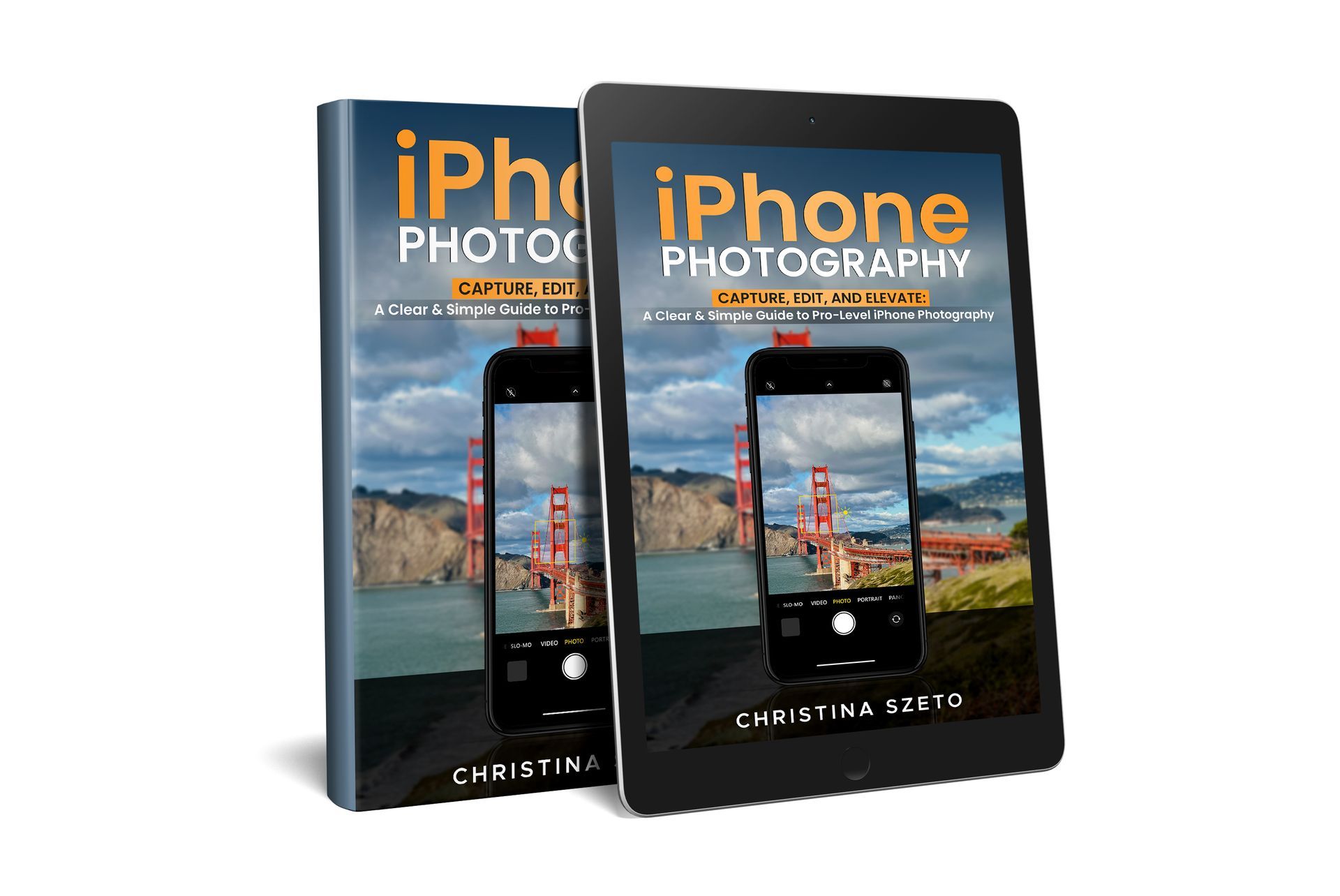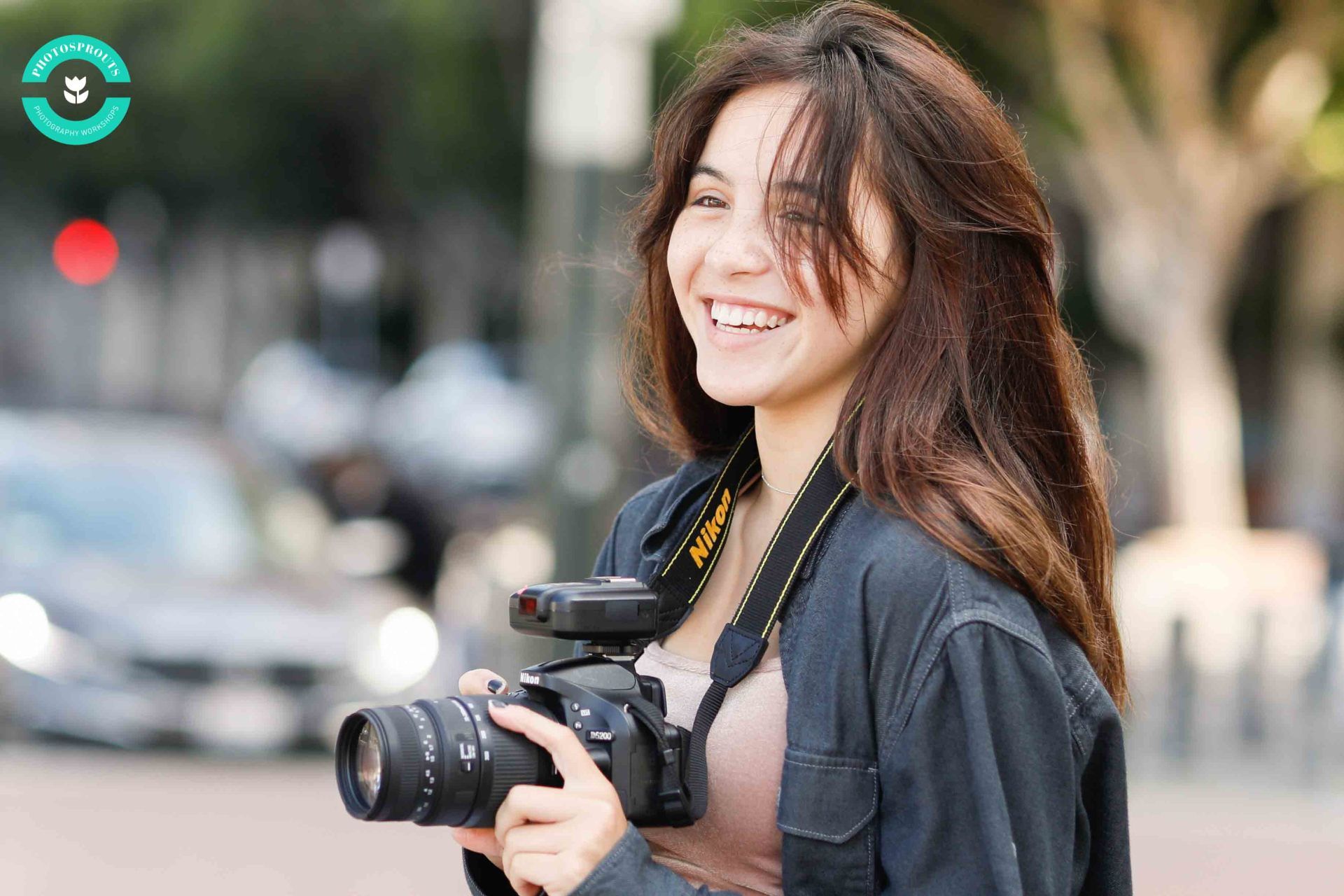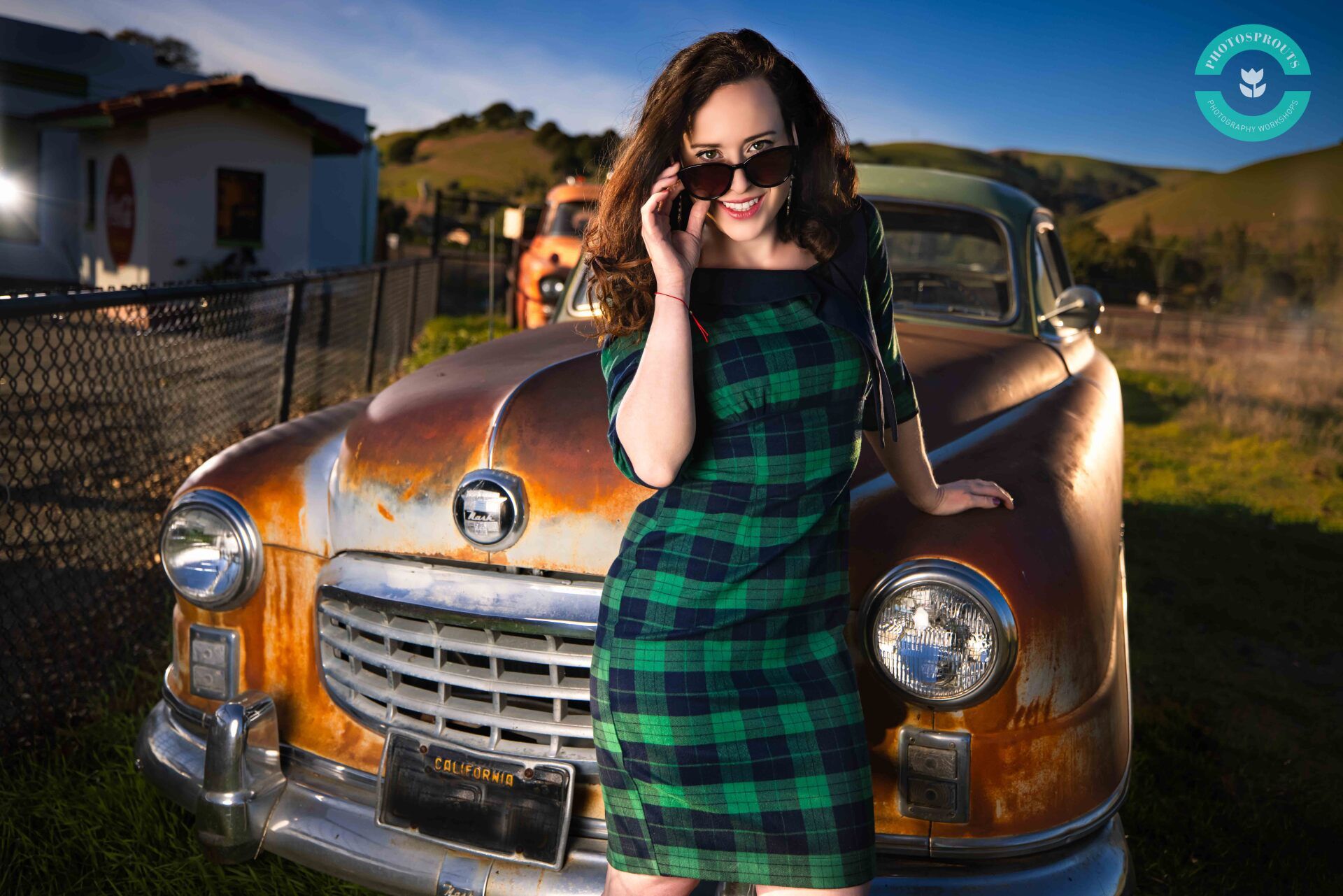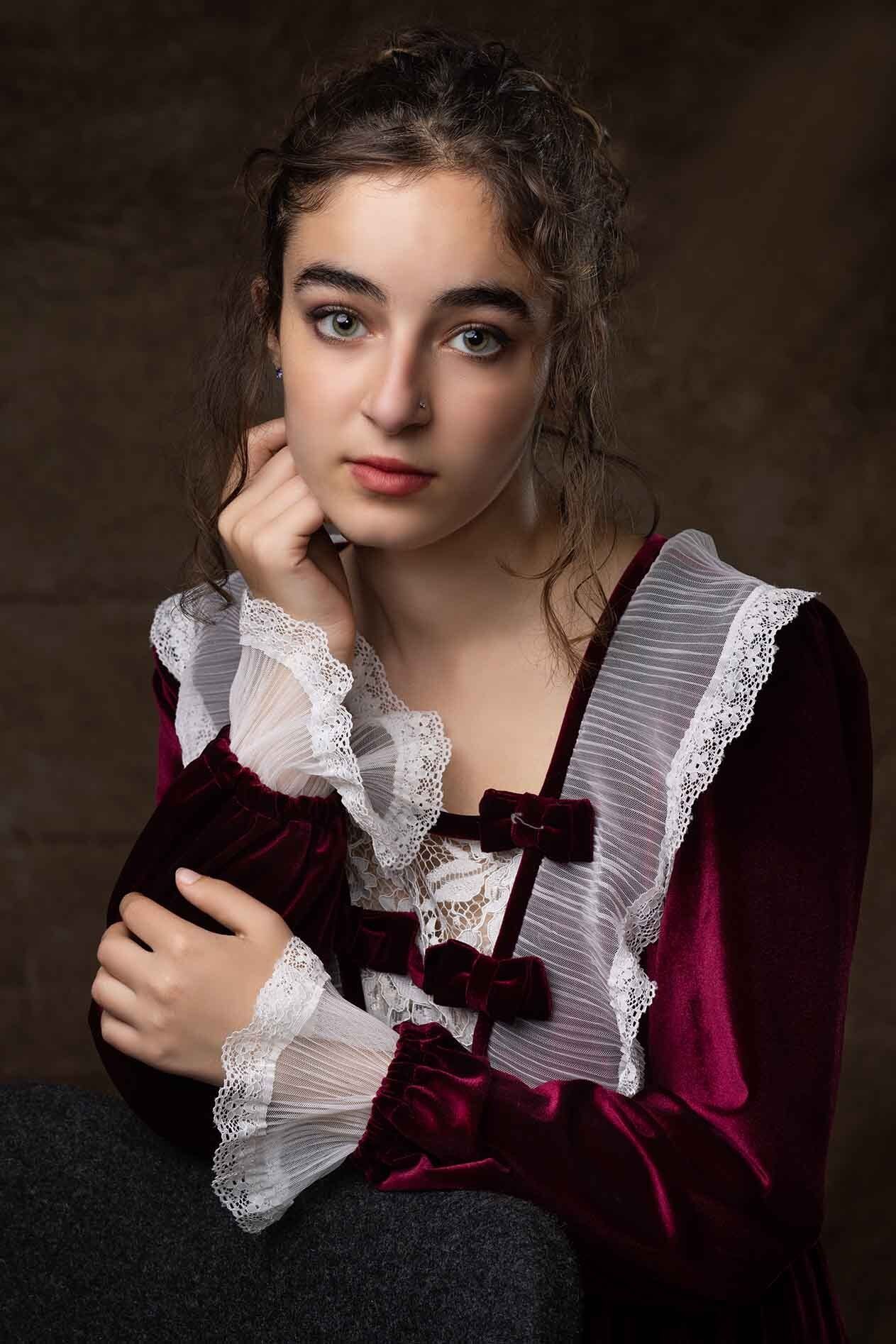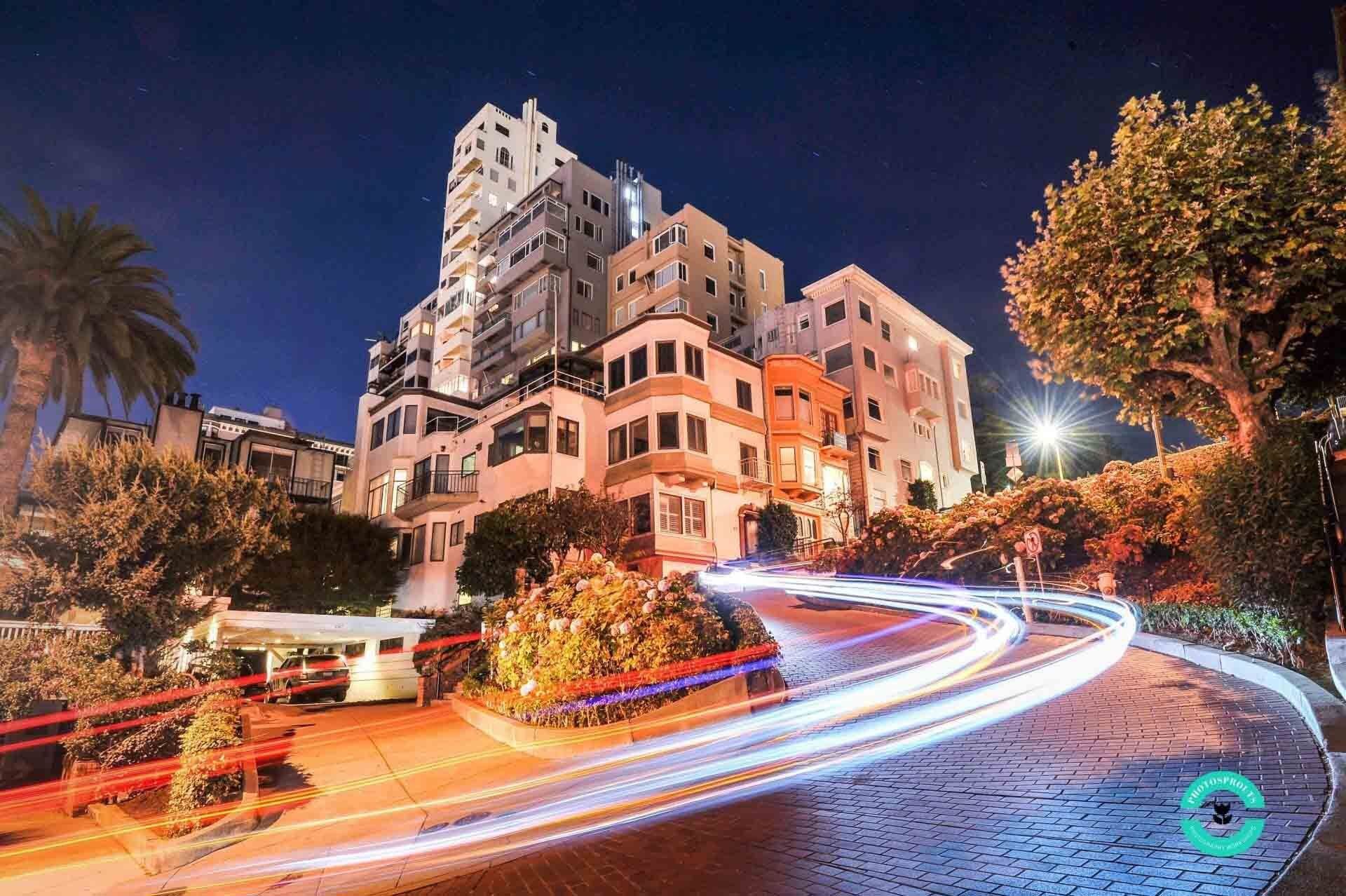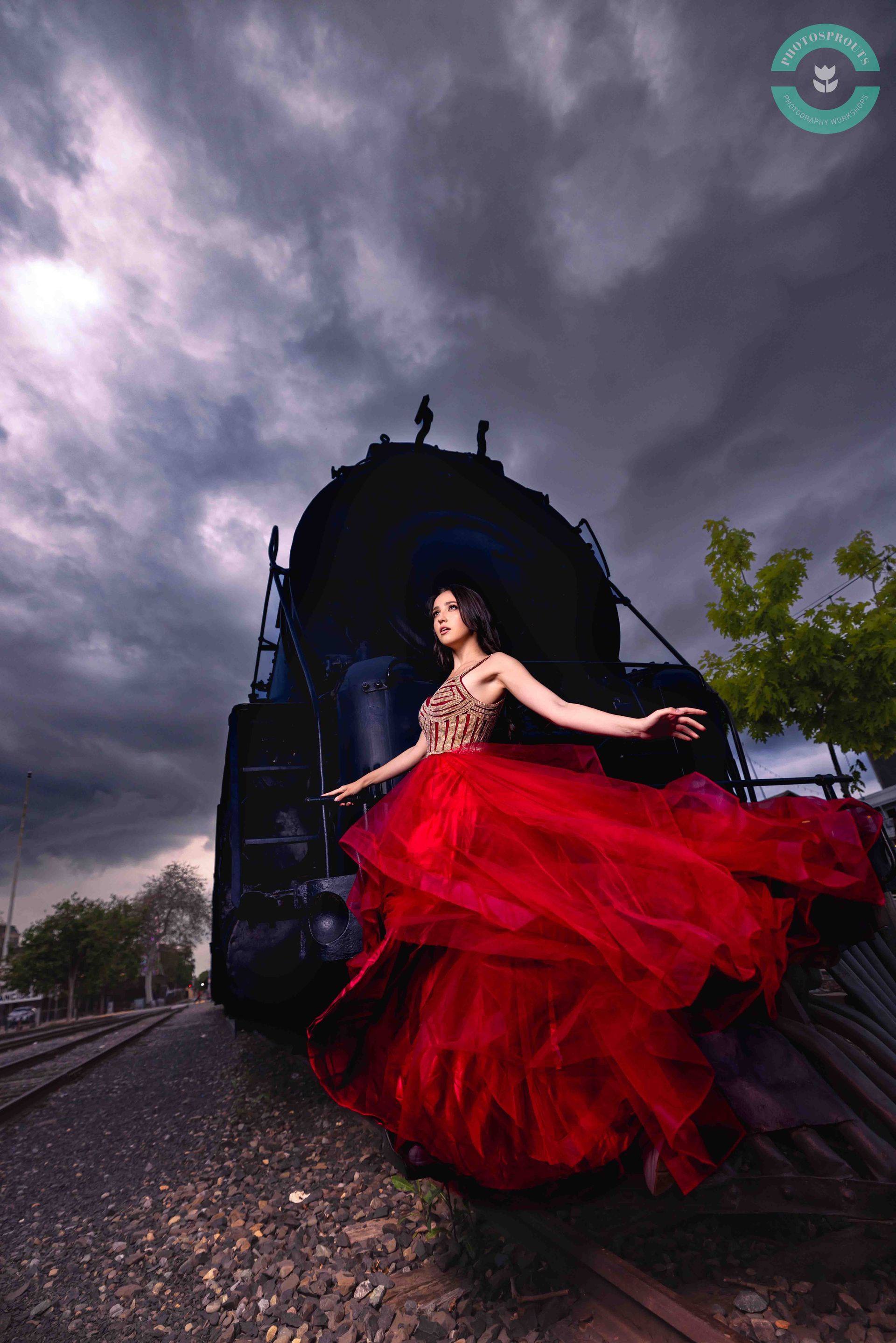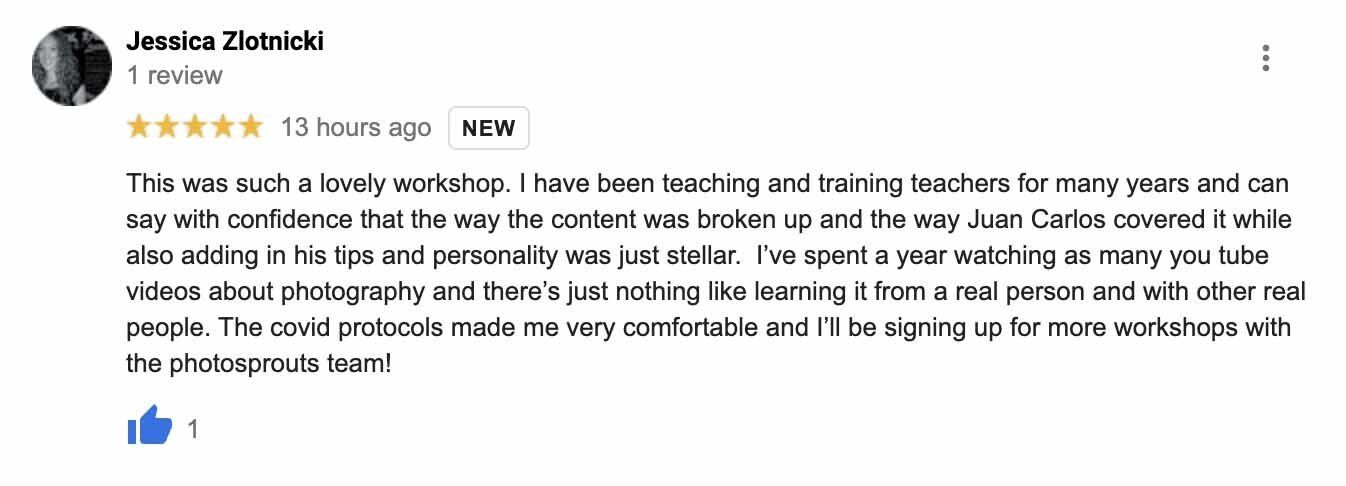eBook
Books and online courses are everywhere—but trust San Francisco's top-rated photography school that consistently leads in-person classes.
Online Classes
Beginner's Photography Workshop
Your Photography Journey Starts Here
Saturdays 10am-12pm
Thursdays 5pm-7pm
Beginner's Level
Beginner's Digital Photography Workshop
Equipment Provided
New to digital photography? Not sure which camera to buy?
No worries, we've got you covered! The Beginner's Photography Workshop is perfect for you!
Each attendee will be provided with a mirrorless camera during class, so there's no need to purchase one beforehand. Alternatively, you’re welcome to bring your own equipment and learn how to make the most of it.
In this 2-hour workshop, you'll learn the fundamentals of photography through hands-on exercises: lighting, exposure, aperture, shutter speed and ISO and their combined effects on an image. You'll be controlling different settings of a camera one by one with a lot of individual attention from the instructor.
We believe that fresh beginners need to have some actual experiences of using a digital camera, and the essential photography knowledge in order to decide what camera and lenses to buy. We keep the class size to 6 so that everyone can move at the same pace.
The 2-hour class is a huge time saver for those who want to learn photography:
We deliver organized & relevant information through a thoughtfully and earnestly designed curriculum (no jargons). You'll be able to transfer the knowledge & settings to your own equipment in just two hours, versus searching endlessly for youtube tutorials.
Teenagers aged 12+ are welcomed.
Quick Facts
The Beginners' Workshop is a one-off, 2-hour class
| Beginner | |
|---|---|
| Duration | 2 hours |
| Date & time (San Francisco) | Saturdays 10am-12pm |
| Thursdays 5pm-7pm | |
| Equipment provided | Canon R50 Mirrorless Camera |
| Class size | 6 |
| Pricing | $145 |
| Prerequisite | No |
Class Dates
Note: The Beginners' Workshop is a one-off, 2-hour class
Location:
535 Mission Street, San Francisco
*We no longer offer classes in Palo Alto*
Saturdays:
April 12th 2025 Saturday 10am-12pm
April 19th 2025 Saturday 10am-12pm
April 26th 2025 Saturday 10am-12pm
May 3rd 2025 Saturday 10am-12pm
May 10th 2025 Saturday 10am-12pm
May 17th 2025 NO CLASS
May 24th 2025 Saturday 10am-12pm
May 31st 2025 Saturday 10am-12pm
June 7th 2025 Saturday 10am-12pm
June 14th 2025 Saturday 10am-12pm
June 28th 2025 Saturday 10am-12pm
Thursdays
April 10th 2025 Thursday 5pm-7pm
April 17th 2025 Thursday 5pm-7pm
April 24th 2025 Thursday 5pm-7pm
May 1st 2025 Thursday 5pm-7pm
May 8th 2025 Thursday 5pm-7pm
May 22nd 2025 Thursday 5pm-7pm
May 29th 2025 Thursday 5pm-7pm
June 5th 2025 Thursday 5pm-7pm
June 12th 2025 Thursday 5pm-7pm
June 26th 2025 Thursday 5pm-7pm
***
If none of the above dates suit your schedule, you can:
Option 1-
Sign up for the Beginners & Intermediate Online Workshops.
Option 2-
Book a private class. Learn more about the rate and length of a private class here.
***
Policy
As we only take 6 students every week, please try not to reschedule unless you really have to. Rescheduling is only allowed ONCE and at least 3 days prior to the start of the class.
What will you learn?

- Get away from the Auto Mode

2. Make sense of the exposure triangle: ISO, aperture and shutter speed
3. Controlling the Depth of Field: shallow or deep
4. Creating the Sense of Motion: Motion blur or freeze

5. Take sharper pictures;
photo composition and lighting

6. Shoot in Aperture Priority Mode

7. Shoot in Shutter Speed Priority Mode
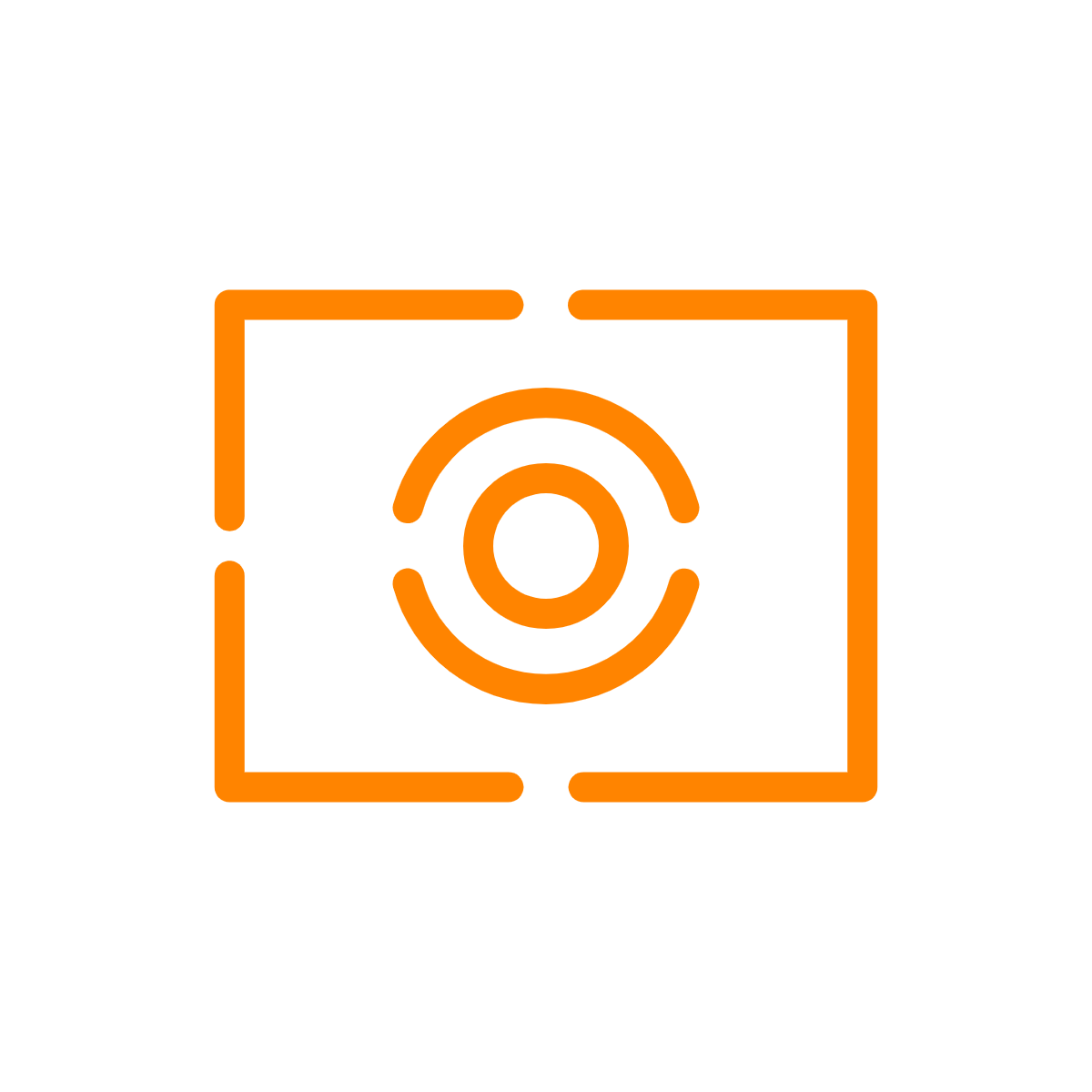
8. Master 4 core settings and forget the useless ones
Bundled Discount Codes

BUNDLED12
Save $30
Beginner + Intermediate I

BUNDLED23
Save $60
Intermediates I & II

BUNDLED123
Save $100
Beginners + Intermediates I & II
We provide the Equipment
that We Genuinely Believe is Good for Beginners
You might have bought a camera based on a photographer friend’s recommendation—only to find it frustratingly hard to use. Or maybe you watched YouTube reviews that skipped over the camera's downsides, which you only discovered after making the purchase. Sometimes, a friend or family member gifts you a camera, but you’re not quite sure how to use it.
We genuinely believe the Canon R50 (And no, we’re not sponsored—Canon doesn’t shower their fans with as much love as Sony does!) is the best beginner-friendly camera out there. It’s easy to use, yet powerful enough to grow with you as your photography skills improve—that’s exactly why we provide it in class.
If you've got your equipment already, that's fine, just bring it to the class and we'll teach you how to use it.
Here are 7 essential tips(and traps to avoid) to help you choose the right camera with confidence.
-
Shall I also sign up the Intermediate I & II Workshops?
We strongly encourage you to sign up this class together with the Intermediate I & II Workshops to get a comprehensive knowledge in the basics of photography. You will be able to shoot proficiently in the Manual Mode after completing the Beginner & Intermediates Workshops.
-
Can I use my own equipment?
Yes, you can bring and use your own equipment during the class.
-
Is the equipment provided in the Beginners' Workshop the same as in the Intermediate Workshops?
Yes, both Canon R50 Mirrorless Cameras are provided in the Beginners and Intermediate I and II Workshops.
-
Why is a mirrorless instead of a DSLR camera is provided?
Previously, we provide the Canon T6 DSLR during the class.
However, with the advancement of technology, a mirrorless camera is way more powerful and capable than a DSLR camera.
On average, one only needs 5-15 seconds to determine the exposure and composition in a mirrorless camera, vs 30-60 seconds in a DSLR camera.
As a responsible photography education company, it is our mission to teach what's best for students, rather than sticking to using old technology.
To be honest, DSLR cameras will be phased out soon.
Here're the advantage of mirrorless cameras over DSLRs:
1. Technological Advancements
Modern Technology: Mirrorless cameras represent the forefront of photographic technology. Unlike DSLRs, which use a mirror mechanism to reflect light into an optical viewfinder, mirrorless cameras are built without this mechanical mirror system. This difference makes mirrorless cameras more compact and mechanically simpler, reducing the chance of mechanical failure and often resulting in lighter, more portable devices.
Electronic Viewfinder (EVF): Mirrorless cameras utilize electronic viewfinders, providing real-time exposure and focus previews. This feature allows students to see exactly how adjustments will affect the final image, enhancing their learning and understanding of photographic concepts.
2. Image Quality and Performance
Superior Autofocus Systems: Mirrorless cameras generally offer more advanced autofocus (AF) systems including the game-changing Eye AF.
Continuous Shooting Speed: Without the mechanical mirror flip of DSLRs, mirrorless cameras often achieve higher continuous shooting speeds, beneficial for action and sports photography modules within the class.
3. Future-Proofing Skills
Industry Trend: The photography industry is rapidly moving towards mirrorless technology. Major camera manufacturers are focusing their research and development on mirrorless systems. By using mirrorless cameras, students will be learning on equipment that aligns with current and future industry standards, preparing them for professional environments.
4. Practical Advantages in Learning
Real-Time Feedback: The electronic viewfinder and live view on the LCD screen give students immediate visual feedback on exposure, white balance, and other settings, helping them learn faster and understand the impact of their adjustments in real-time.
5. Silent Shooting: Many mirrorless cameras offer silent shooting modes, eliminating the noise of the shutter. This feature is beneficial in settings where noise is a distraction, such as wildlife photography or quiet environments, allowing students to capture images without disturbance.
6. Price match
Investing in mirrorless systems can be more cost-effective and even less expensive, especially as DSLRs become obsolete and manufacturers shift their support towards mirrorless technologies.
-
What's the difference between a DSLR and a mirrorless camera?
You'll learn the difference between a DSLR and a mirrorless camera in great detail in the Beginners' Workshop. In summary, the advantages of mirrorless cameras over traditional DSLRs are:
1) Faster focusing.
2) Captures an image electronically rather than optically, allowing more accurate focusing.
3) Have Eye AF (automatically places and locks the focus on a human/ animal eye, resulting in sharper portraits).
4) Allows live view shooting, which means the users can instantly see the exposure and composition on the LCD screen. Note that the "live view mode" of a DSLR camera do not work in the same efficient way as a mirrorless one.
5) Lighter.
6) Will fully replace DSLR cameras in a few years.
-
How do I find out what I own is a DSLR or a mirrorless camera?
Google it:
"_your camera model + dslr or mirrorless?"
and you will see the result.
E.g "Canon R50 dslr or mirrorless"
--> Mirrorless
E.g "Nikon D700 dslr or mirrorless"
--> DSLR
-
The camera that I own is DSLR, will I still be able to learn how to use it?
Yes, you can!
There are only 5 core and universal settings that you need to know to shoot on any cameras, including mirrorless and DSLR cameras.
However, DSLR cameras are using old technology and will give you a harder time to change the focus point and nail the exposure. You have to do multiple trial-and-errors in order to determine the exposure and composition. The process can take up to 60 seconds.
As for mirrorless cameras, changing the focus point is extremely easy and you can also instantly preview the composition and exposure before a shot is take. The process may take as short as 5 seconds.
While you can still apply the knowledge that you learn in the class with a mirrorless camera to your DSLR, you'll hate the old technology in it.
The photography industry is rapidly moving towards mirrorless technology, and DSLRs doesn't worth that much in the used market. We recommend you to sell your DSLR equipment as soon as possible when it still has a little value, and use the money to go fully mirrorless.
-
Are all mirrorless cameras the same in terms of technology?
No, the technology isn't the same across all mirrorless cameras.
Some mirrorless cameras such as Sony A7iii and Canon R100 do not have touch screen functionality and this takes away the joy of going mirrorless, so don't buy them. There's really no point to buy a mirrorless camera that doesn't have touch screen functionality.
Some older mirrorless cameras do not have sophisticated Eye AF. For example, the Canon M50 (first generation) does not have a powerful Eye AF as the technology back in 2018 wasn't mature enough.
We picked the best and most up-to-date mirrorless camera, the Canon R50, for you to experience what's it like to happily shoot on a mirrorless camera during the class., before investing in one.
The Canon R50 is good enough for many genres of photography, even though it is just an entry level one, and you'll love it; and not mention you also have the option of investing in other even better mirrorless cameras, say the Canon R5, R6, Nikon Z9 etc.
Our advice is, don't buy any camera, even though it's a mirrorless one, before the class. Learn photography, experience the amazing R50 before investing in any equipment.
-
Can I bring a friend/family to the class?
Unforunitely, the answer is no, even the guest is willing to wait in the building's public area instead of the classroom.
Due to COVID-19, the class is only limited to the attendees and the instructors.
Start To Take The Pictures That You Love
Learn the basics through hands-on practice.
The classwork is application oriented and replicates real-life scenarios.



